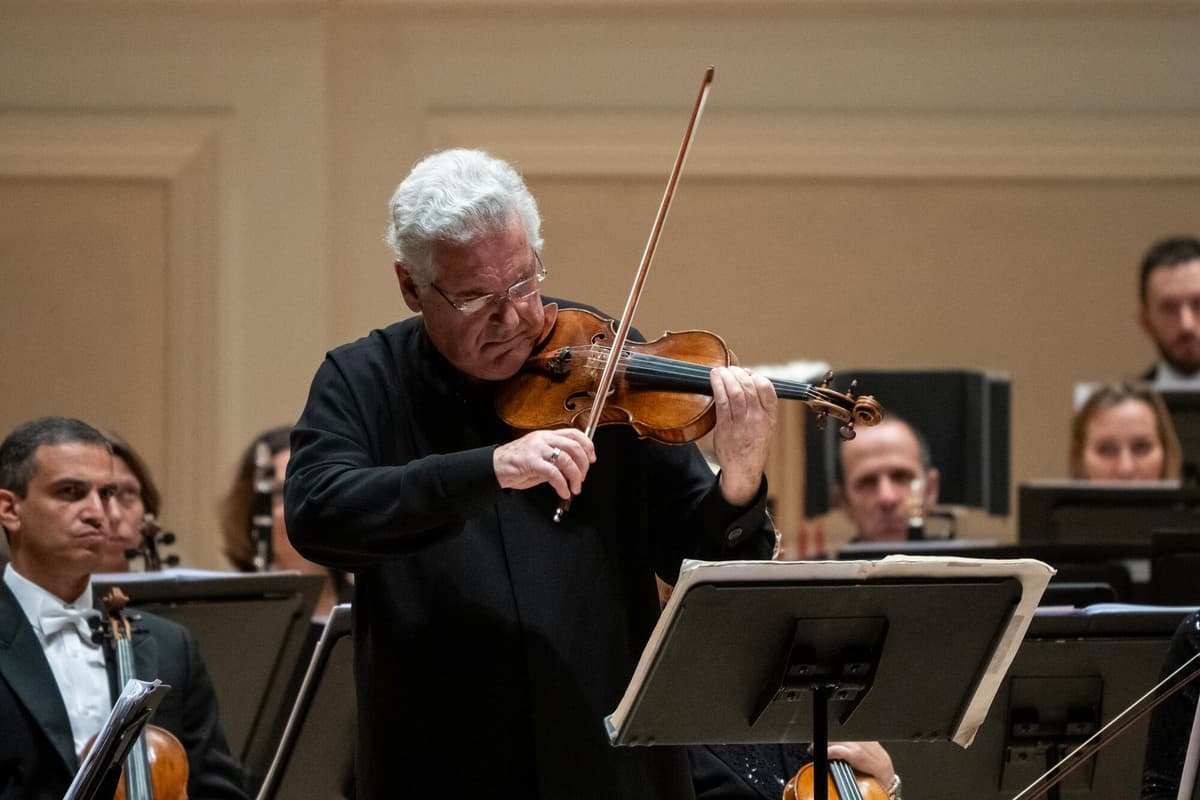The Israel Philharmonic Orchestra’s recent performances at Carnegie Hall infused the venue with a sense of hope and celebration following the return of 20 hostages from Hamas. This notable event, held in New York City, showcased the orchestra’s rich musical heritage without delving into political themes. Instead, the evening resonated with a spirit of unity and cultural expression.
Founded in 1936, the Israel Philharmonic has a storied history as a refuge for Jewish musicians fleeing persecution in Europe. Under the baton of maestro Pinchas Zukerman, the orchestra delivered a program featuring works by Sergei Prokofiev, Paul Ben-Haim, and Pyotr Tchaikovsky. The absence of the Israeli national anthem, Hatikvah, did not detract from the emotional significance of the evening, which seemed buoyed by recent events in Israel.
Musical Heritage and Cultural Significance
The concert opened with Prokofiev’s “Overture on Hebrew Themes,” a poignant piece co-created with a sextet of Jewish musicians known as Zimro, who aspired to establish a “Temple of Jewish Art” in Israel. Although that vision was never realized, the overture remains a delicate blend of klezmer melodies and the rhythms of Jewish prayer. Prokofiev, who left the Soviet Union in 1917, found his way to New York City, where his work continued to evolve.
Ben-Haim’s violin concerto, performed by Zukerman, further highlighted the integration of Jewish musical traditions. Born Paul Frankenberger in Munich, Ben-Haim was awarded the Israel Prize in 1957. His compositions deeply reflect Israeli identity, especially in the second movement of the concerto, which resonates with influences from Mizrahi music, including the “Songs Without Words” and “Berceuse Sfaradite.” This concerto was notably conducted by Leonard Bernstein during its premiere in 1968, celebrating the 20th anniversary of Israel’s independence.
Zukerman’s performance was characterized by precision and artistry, complementing the dynamic presence of the orchestra’s music director, Lahav Shani. Shani, a prodigious talent, is set to assume the role of chief conductor of the Munich Philharmonic. Their collaboration included a touching moment, as they played a lullaby from Zukerman’s childhood, adding a personal touch to the performance.
Tchaikovsky’s Emotional Depth
The evening culminated with Tchaikovsky’s “Symphony No. 4 in F Minor,” a work renowned for its emotional intensity. Tchaikovsky described its opening notes as embodying the “fatal force” that disrupts humanity’s quest for happiness. His life, filled with personal struggles and achievements, mirrors the symphonic journey, showcasing the duality of despair and triumph.
The founder of the Israel Philharmonic, Bronislaw Huberman, envisioned an orchestra that united the aspirations of a nation with the artistic expression of its Jewish musicians. In today’s climate, where cultural spaces often align against the Jewish state, the Israel Philharmonic’s commitment to artistic excellence stands as a powerful testament to resilience and cultural pride.
As the audience at Carnegie Hall experienced this rich tapestry of sound, the performance not only celebrated the return of hostages but also reaffirmed the enduring power of music as a unifying force. Through the lens of history and contemporary events, the concert served as a reminder of the role art plays in overcoming adversity and fostering hope.
